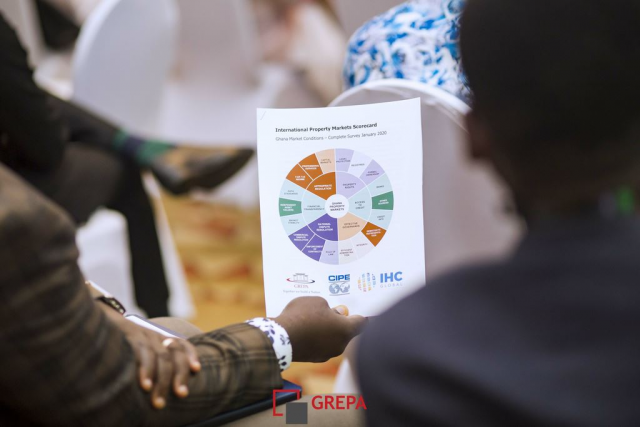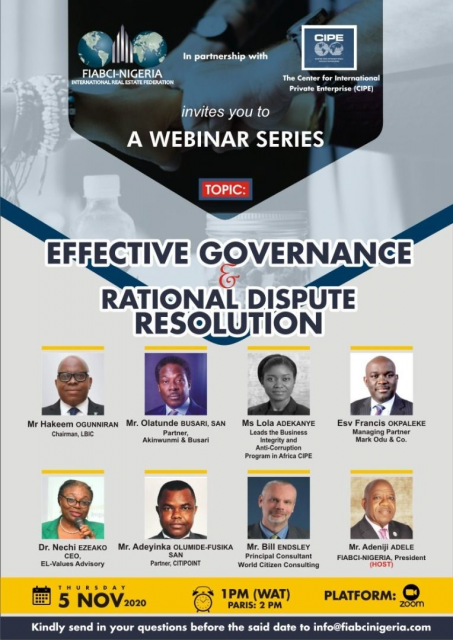
Good governance procedures and the rule of law ensure that the opinions of all rather than just the opinions of the elite and powerful are represented in government. Business organizations and associations that help achieve the proper balance between those who hold power and the citizens they serve are critical not only to political stability, but also to the functioning of property markets. Achieving broad-based representation and transparency in decision-making through good governance is essential to the credibility of regulatory bodies and the policymaking process.
MEASURE
Research the political rights and civil liberties in your country.
Consult the country Scorecards that have been developed or use the Effective Governance section of the Scorecard methodology to develop or update that part of the Scorecard for your country.
Freedom House – Global Freedom Scores
Freedom House rates people’s access to political rights and civil liberties in 210 countries and territories through its annual Freedom in the World report.
Country and Local Sources
Each country has resources for governance issues such as:
Compile the resources for governance issues in your city, country, and region.
Field Questions
Use these questions in interviews or roundtables with local stakeholders to get an idea of SMEs experiences dealing with the government:
- What are the processes for businesses to be engaged in policymaking? Are there any formal consultation mechanisms on policy issues?
- What is the local government’s ability to formulate and implement sound policies and regulations that permit and promote private sector development?
- What actions can business and property organizations take to help fill the gap between policy formation and implementation?
Identify key issues in local governance and choose one or two issues to address with SMART goals:
· Specific – choose goals that are simple, significant, and likely to make a difference.
· Measurable – set a metric, e.g., SMEs are consulted on draft legislation that affects their businesses.
· Achievable – keep the goals within the realm of your organization and influence.
· Resourced – what time and money will be dedicated to achieving the goal?
· Time Defined – set a time for the goal to be achieved.
Ghana Case Study
Real Estate Agency Act
Ghana Real Estate Agency Council

In July 2016 and August 2017, Parliamentary Delegations from Ghana visited Chicago to study the real estate market, regulations, and interact with local professionals, including the National Association of Realtors, the Illinois Association of Realtors, and Mainstreet Organization of Realtors. The Ghana Scorecard was used to show these officials how Ghana’s property market fared among other countries. The visits were in preparation for the regulation of property market professionals in Ghana. The Association of Real Estate License Law Officials was consulted to help develop draft legislation. After many starts and stops, the Ghana Real Estate Agency Act finally passed in December 2020, and the Ghana Real Estate Agency Council began operations in May 2024.
COLLABORATE
Property markets are an essential part of a functioning and transparent economic system. Yet often government agencies work in silos where data is not shared, and accurate information is not available regarding property transactions and valuations.
Identify key stakeholders including potential partners and supporting organizations that will also benefit from more engagement with government.
- Engage with decision-makers on policy issues relevant to property rights and markets.
- Make sure SMEs understand the complete processes for transferring property from one owner to another.
- Find out what government programs are available to assist businesses and what special economic development areas or target industries are in place.
- Visit local property owners and managers, brokers, developers, and/or valuers and ask them about recent experiences dealing with government officials. Be sure to include information about how local, state, and national regulation/implementation may differ or conflict.
- Confirm the key issues and improvement goals.
- Develop an ongoing Stakeholder Engagement Plan, e.g., Stakeholder will meet twice a year to review progress and set new goals and targets.
Kenya Case Study
In Kenya, CIPE supported using the Scorecard Methodology in the initial field testing with the Institute for Economic Affairs (IEA) to create a report and advocate with the Ministry of Lands on key reform priorities identified, including the lack of reliable cadastral information. The Ministry took up this recommendation, but noted they did not have the equipment or capacity to undertake a national survey. Funds were acquired to develop the database including equipment, but the project took some time to complete and was only recently finished.
It is still possible to obtain a fake title in Kenya. Because of this, banks are reluctant to loan. A lot of time and energy is used to prove which title is valid, and this has created an entire system of land grabbers. This happened in Nairobi, close to the Land’s office. This is not just for private land, even with public land, there are disputes.
IEA feels that now that there is a credible cadastral system that is transparent and verifiable by anybody with an interest, even at a small fee, issues of fraud can be more readily addressed. This will also create further efficiencies and lead to more equitable property market development.
Kenya’s experience illustrates the linkages between property market elements, such as clear title and access to credit, and shows that when important supporting institutions remain weak, either due to the lack of a proper legal and regulatory framework or weak implementation, property markets remain limited and overall economic growth is stymied.
Nigeria Case Study


In 2020, following in-person training programs based on the Scorecard Methodology in 2018 & 2019, the International Real Estate Federation – Nigeria Chapter, FIABCI-Nigeria presented a series of Webinars with participants from across the spectrum of property market stakeholders. These participants included representatives from the Lagos State Lands Bureau, Commissioner for Justice of Lagos State, prominent attorneys, standard chartered banks, Islamic banks, Lagos Building Investment Company, CIPE, estate surveyors and valuers, local accounting firms, and Lagos property agents.
These collaborations lead to robust dialogues among the participants and ongoing trust. The focus was particularly on Lagos where the opportunities for reforms were most promising. Since that time, there have been steady improvements in the property market conditions in Lagos.
ADVOCATE
Business membership organizations together with real estate professional organizations should develop advocacy programs that focus on locally identified needs, such as:
- The need for property professionals to be licensed and regulated.
- Incentives for the accurate reporting and recording of property transaction data with:
- Lower initial transaction taxes
- Supplemented by minimal annual property taxes
- A “Guillotine” program for the removal of outdated, redundant, and conflicting laws and regulations, such as the multi-year program within the framework of regulatory reforms conducted by the Investment Council of Armenia.
Armenia Case Study
As a part of the original development and field-testing of the International Property Markets Scorecard in 2010, CIPE and the Association for Foreign Investment & Cooperation in Armenia (AFIC) used the Scorecard to examine the strength of urban, commercial property markets in two major cities and highlight barriers that small businesses face, with the particular focus on property rights and access to credit. AFIC tailored the fieldwork through a mix of focus groups and interviews to obtain the most accurate snapshot of the conditions entrepreneurs face in dealing with the government, banks, and professional services providers in the property sector.
The resulting Scorecard recommendations have since been used by business associations, business support organizations, and policy makers to develop and advocate for strategies that triggered the development of the SME sector and economic growth in the country. While the key role of policymaking rests with the government, the primary lesson of the Scorecard project was the necessity of improved public consultation through the increased engagement of SMEs in the discussions of draft regulations and policies that affect SMEs, as well as fostering the advocacy capacities of business associations.

